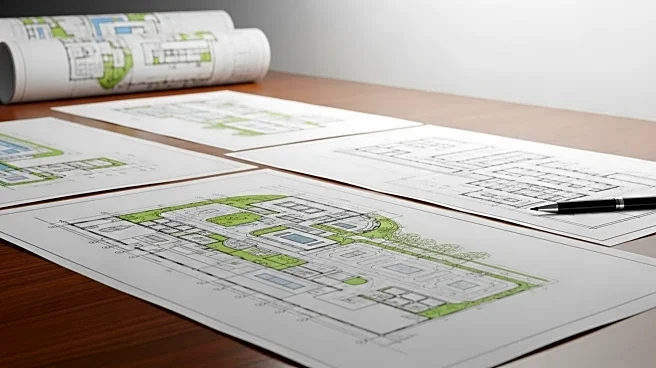What is the story about?
What's Happening?
The NHS has announced plans to accelerate the construction of 10 new hospitals by standardizing 80% of their design. This approach, part of the New Hospital Programme, aims to replace outdated facilities across England. By using a repeatable design system called Hospital 2.0, the NHS intends to cut delivery times in half compared to previous projects. The initiative includes modular construction methods and a focus on single-occupancy rooms to enhance infection control and patient dignity. The program is supported by a £15 billion investment and involves collaboration with leading architects and engineers.
Why It's Important?
This initiative is significant as it addresses the urgent need for modern healthcare facilities in the UK, particularly in the wake of the pandemic. By standardizing hospital designs, the NHS can reduce construction time and costs, allowing for quicker access to improved healthcare services. The focus on single-occupancy rooms reflects a shift towards better infection control measures, which is crucial in preventing future health crises. This approach could serve as a model for other countries looking to modernize their healthcare infrastructure efficiently.
What's Next?
The NHS plans to allocate one hospital project to each contractor, spreading the workload and risk. The use of modern construction methods and offsite production is expected to enhance efficiency and quality. The program's success could lead to further waves of hospital construction, with additional contractors being engaged. The NHS's commitment to decarbonization, with fully electric hospitals, aligns with broader environmental goals, potentially influencing future healthcare projects globally.

















